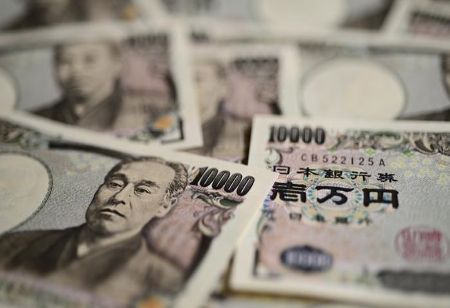
On Wednesday, the yen dipped to its lowest levels against the dollar since 1990, prompting market speculation about potential intervention by Japanese authorities to support their currency. The dollar surged to 155.17 yen, marking its strongest performance since 1990, before retracting amid volatile trading, reflecting market jitters around the 155 threshold. It last stood at 154.97, up 0.09 percent.
This yen depreciation follows robust U.S. inflation figures that propelled the dollar to five-month highs, reinforcing expectations that the Federal Reserve will refrain from cutting interest rates this year. The yen's decline against the dollar has reignited speculation about currency intervention. Japanese Finance Minister Shunichi Suzuki and other policymakers have emphasized their vigilance over currency movements and readiness to take action as necessary.
The dominance of the strong dollar was evident at the recent International Monetary Fund/World Bank Spring meetings in Washington, where the United States, Japan, and South Korea jointly addressed the issue in a rare statement. Following the Group of 20 (G20) finance leaders' gathering in Washington, Bank of Japan Governor Kazuo Ueda suggested that the central bank might consider raising interest rates if significant yen depreciation substantially drives up inflation. This underscores the challenge the weakening currency poses for policymakers.
We use cookies to ensure you get the best experience on our website. Read more...